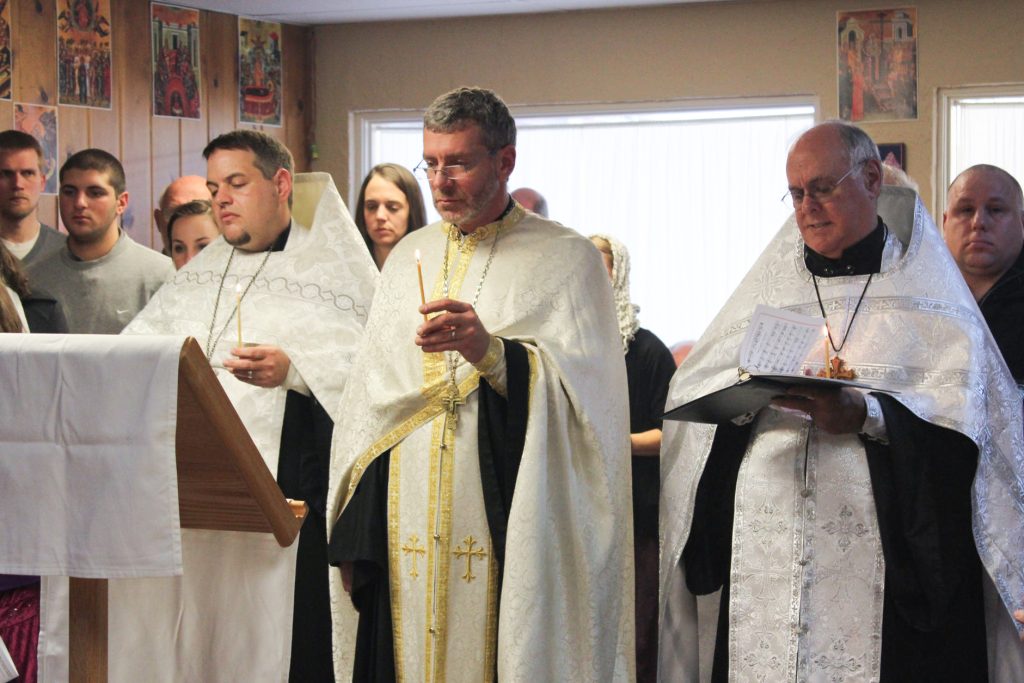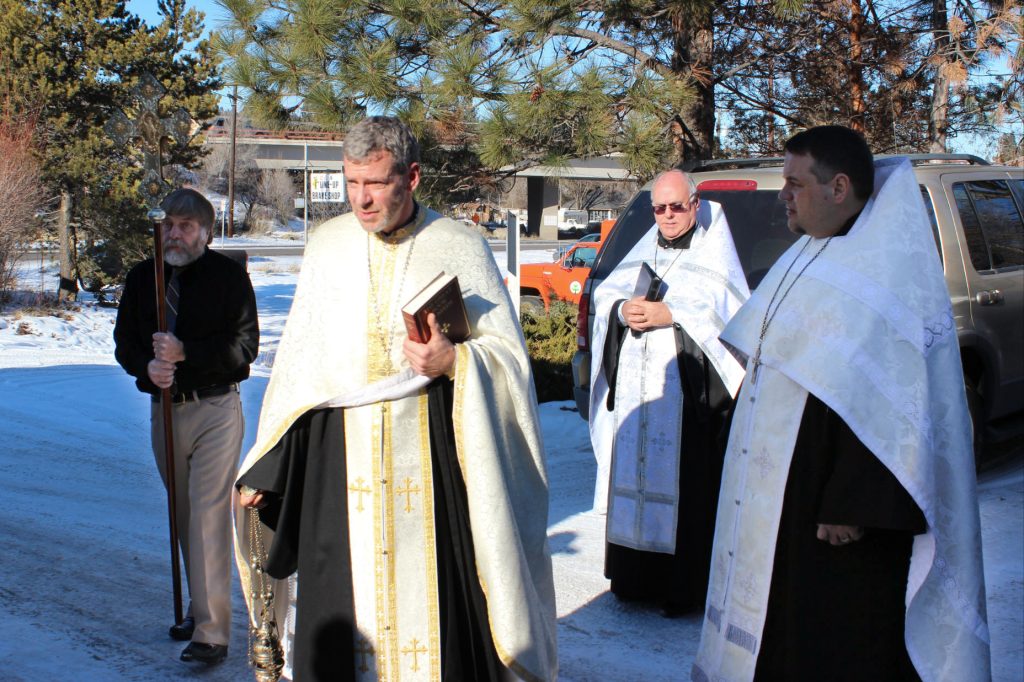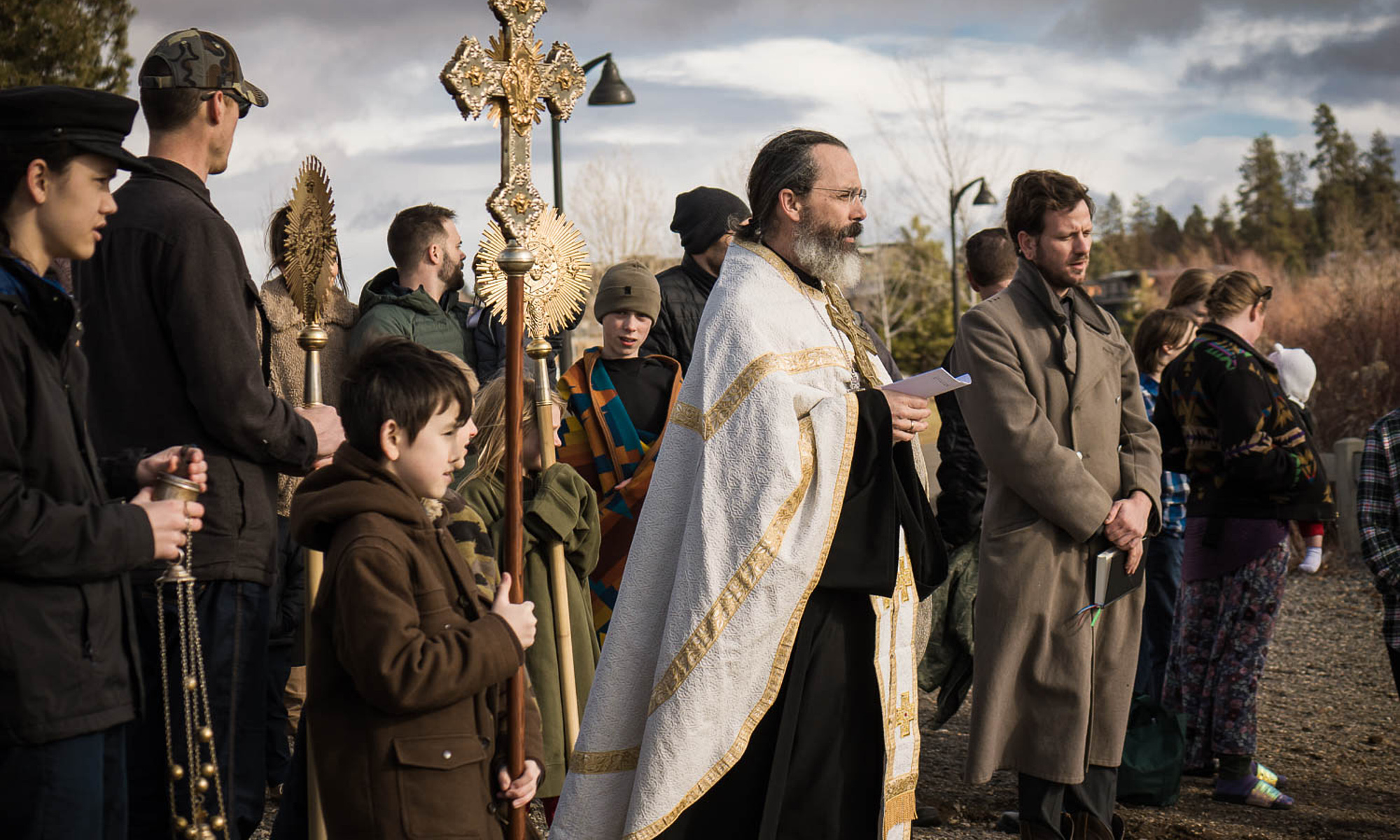One struggle I was looking for in the journals of St. Jacob is racism. St. Jacob was half Russian, half Alaskan native. And in much of the world’s history during this colonial era, racism is thoroughly embedded. I did find one reference of such an issue from Governor Chistiakov in Sitka, when St. Jacob, his wife, and father first arrived, the governor being described by Archpriest Michael Oleksa as “racist, opposing, and attempting to prohibit Russian-native marriages”. Even then, mentioned in the same source, this governor was known to be anti-clerical. Meaning: he already did not like this priest coming around in the first place, much less his native lineage.
Continue reading “Russian Alaska and a Creole Priest”Yes, Lord — Scriptures, Church, Christ
The holy scriptures—Christ’s Church—Christ himself: how incredibly fortunate we are!
First, the scriptures. John Chrysostom says this:
Great is the profit of the holy Scriptures, and all sufficient is the aid which comes from them…for the divine words are a treasury of all manner of medicines. Whether it be needful to quench pride, to lull passion to sleep, to tread under foot the love of money, to despise pain, to inspire confidence, to gain patience—in the Scriptures we find abundant resources. For what man—of those who struggle with long poverty or who are nailed by a grievous disease—will not, when he reads the passage before us, receive much comfort? This man had been a paralytic for thirty eight years, and he saw others delivered each year, and himself bound by his disease… “Yes, Lord, he says, but I have no man…to put me in the pool.” What can be more pitiable than these words? …Do you see this heart crushed through long sickness? Do you see all violence subdued?…He did not curse his day…but replied gently … Yes, Lord. (Homily 37 on Jn 5)
“Great is the profit”, he says. “All sufficient is the aid which comes” from the scriptures. Let us seek (as St. John put it) the medicine for our pride, our love of money, our fear of pain. And instead, through the reading of the scriptures, find confidence and patience in our long sickness—maybe we are not sick of body, but we are certainly so in soul.
Continue reading “Yes, Lord — Scriptures, Church, Christ”St. Jacob’s Greatest Gifts to the Church
St. Jacob followed in the footsteps of many who came before him, not only the big names like St. Herman, St. Juvenaly, and St. Innocent, but more than that, the faithful, everyday folks who worked for the Russian-American Company and lived a faithful witness among the Alaskan peoples. What we find all over St. Jacob’s journals is mentions of locals who had been baptized by laymen and just did not have access to a priest. “It remained for me only to establish them in the faith and chrismate them.”
Continue reading “St. Jacob’s Greatest Gifts to the Church”St. Jacob of Alaska: His Legacy, His Trials, and His Example for Today
St. Jacob of Alaska has left us a wealth of information in his journals. We have translations of his journals, with entries almost every day spanning nearly forty years of missionary efforts. It is clear in many sections of his journals that part of the purpose of journaling was to record vital statistics to pass on to superiors in the Church and in the Russian-American Company.
Though not often mentioned, there is also a feeling that he thinks of these journals as, what we might call, clinical notes: partially processing what is happening, partially recording information that might be useful to himself or others who come back to these same places, and partially studying his own mission efforts so that he may improve upon his methods over time.
Continue reading “St. Jacob of Alaska: His Legacy, His Trials, and His Example for Today”Former Priests of Our Parish
The parish was recently given some old photos from the first few years of our parish, most of them before we were given St. Jacob of Alaska as our patron, and when it was simply called the Orthodox Mission of Bend Oregon. One of those sets of photos were from the funeral of one of our founding members, Zachariah Hogue, and being one of the founding members, the first three priests who served our parish came to serve at his funeral.

Fr. Stephen Soot, the priest who helped the Hogues and others start the mission here in Bend, driving over from Corvallis, is main celebrant for the funeral. To the right, in this photo, is Fr. James McKee, the first priest assigned to the parish; and to the left is Fr. Peter Guilianotti, who also helped serve the parish for a season.

Glory to God for sustaining our parish these 20+ years. There were certainly times that the mission almost folded, but it was the will of God for us to continue. Thank you to the reverend priests, the faithful founders, the generous benefactors, and all the pious parishioners who have lived and served and benefitted the flock here in Bend.
